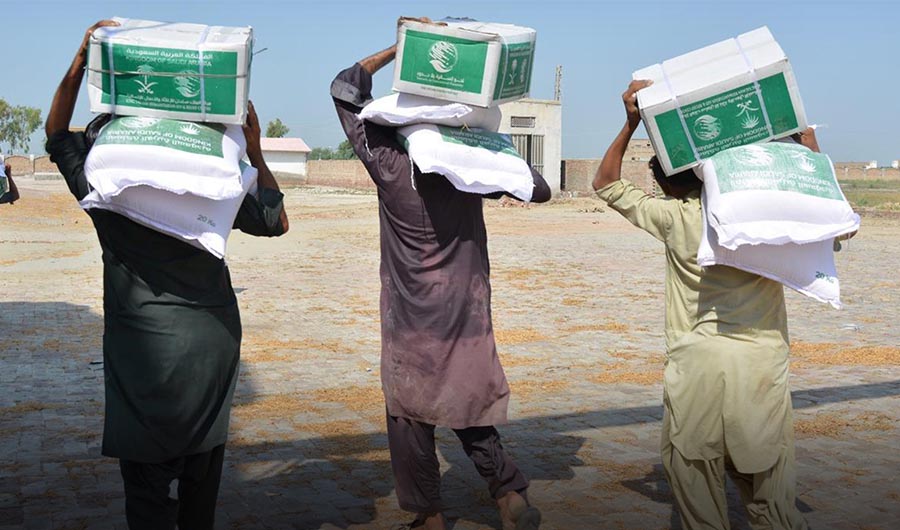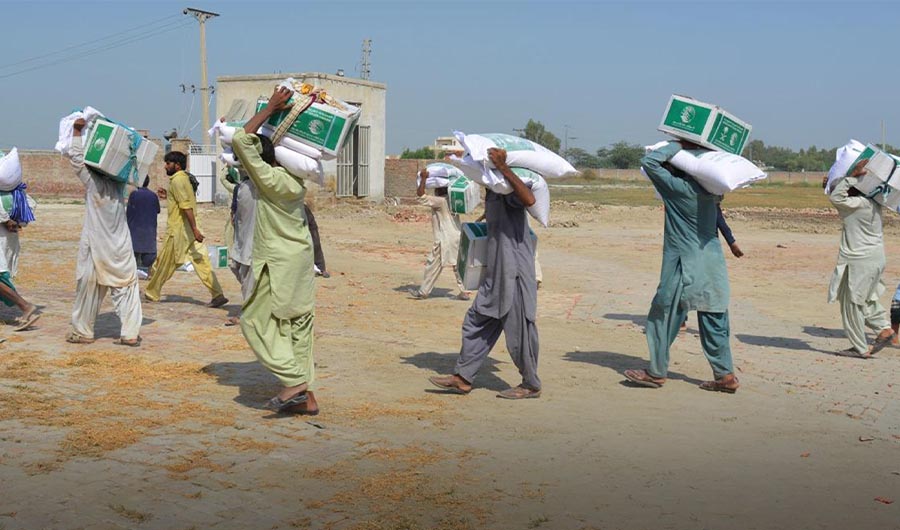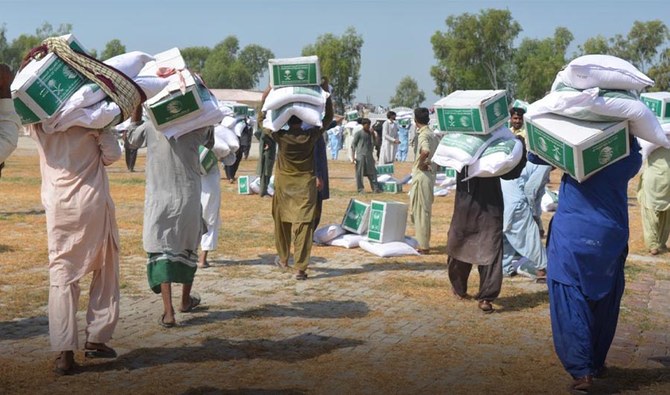ISLAMABAD: The King Salman Humanitarian Aid and Relief Center (KSrelief) on Saturday continued its relief activities in Pakistan and distributed aid in flood-hit areas of Pakistan’s Punjab and Sindh provinces, the Saudi Press Agency (SPA) reported.
Deadly floods, triggered by unusually high monsoon rains, have killed at least 1,606 people and affected 33 million in Pakistan since mid-June.
The deluges have destroyed around 1 million homes, damaged another 1 million houses and washed away livestock, over 370 bridges and standing crops on 4 million acres of land across the South Asian country.
To help the affected people cope with the devastation, Saudi Arabia’s KSrelief has been busy providing relief assistance in flood-hit areas of Pakistan.

People carrying aid distributed by King Salman Humanitarian Aid and Relief Center (KSrelief) in flood-affected areas of Pakistan on Sep 24, 2022.(SPA)
“2,130 food baskets, 37 tents and 260 mosquito nets were distributed in Dera Ghazi Khan and Mianwali districts in Punjab and two areas Rajanpur, and Larkana in Sindh province, benefiting 14,910 individuals,” the SPA reported.

People carrying aid distributed by King Salman Humanitarian Aid and Relief Center (KSrelief) in flood-affected areas of Pakistan on Sep 24, 2022.(SPA)
“These efforts come within the work of the Saudi relief land bridge, which was directed by the Custodian of the Two Holy Mosques King Salman bin Abdulaziz Al-Saud — may God protect him — to support the brotherly Pakistani people after the wave of torrential rains that swept a number of cities and the regions there.”
Saudi Arabia earlier this month established an air-bridge to deliver relief goods to Pakistan as well as launched the Sahem portal in the kingdom to receive donations from the general public for Pakistani flood affectees.

People carrying aid distributed by King Salman Humanitarian Aid and Relief Center (KSrelief) in flood-affected areas of Pakistan on Sep 24, 2022.(SPA)
At least five planes carrying Saudi humanitarian aid have arrived in Pakistan so far as the South Asian nation reels from the flood devastation.
The Kingdom also sent in August 100 trucks carrying more than 950 tons of food and other relief items to Pakistan.












